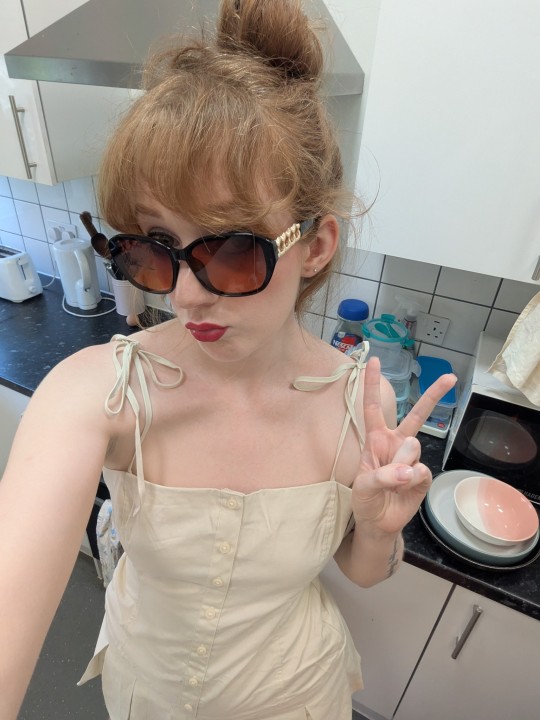#PGCE
Explore tagged Tumblr posts
Text





Spent some time studying pre-1066 British History, and saw the most gorgeous floofy creature 🥹
44 notes
·
View notes
Text
just received an invitation to interview for a pgce course
8 notes
·
View notes
Note
what are your honest opinions on your pgce experience and your subsequent teaching life?? i’m considering applying for a pgce but am unsure/terrified haha
I'm not going to be particularly encouraging here, sorry! I would highly recommend talking to other teachers before making a decision because I can only offer my perspective...
To be blunt, I don't think it was the right choice for me long term. I actually handed my notice in during the summer term and I'm not teaching anymore. I learnt a lot while in school and I found it a real privilege to work with some of the kids I met. However, the overwhelming experience was miserable for me, particularly when I was working as a fully qualified teacher.
I don't want to put you off because for the right person teaching is a wonderful job and most of my PGCE cohort absolutely love their jobs. However, it's not easy and it wasn't the right fit for me. When I was teaching properly it was amazing. I had some wonderful students and I will always be fond of my year 13s and year 10s because I saw them grow so much during the year I was teaching them.
But most of teaching isn't like that. It's hard work, pupils are less disciplined and have more complex needs than ever before. Teachers also have much less authority and are not respected. I spent most of last year firefighting significant problems in my pupil's education than actually teaching history. I'm talking about teaching GCSE pupils how to read, not they're a bit behind. This was huge developmental problems where these kids were systematically failed and I was left to pick up the pieces along with my colleagues. I actually gave up my free time to help a group of year 11s to work on phonics.
On top of this I've never been so poorly treated. I was verbally abused by pupils and their parents regularly with very little support from the schools. I even had a pupil throw a chair at me just because I asked them to move seats. I spent the evening in A&E with a sprained wrist because of it and the school refused to do anything about it other than given that pupil a warning, I was still expected to teach that pupil! (This school was rated "Good" by Ofsted, it wasn't like I was in a particularly rough area. It's just so normalised for some reason?)
I did have a particularly unfortunate teaching experience, but it's not exactly uncommon either. There's a huge number of people who quit teaching within 5 years of qualifying - I also saw 9 of the 12 people on my PGCE drop out before graduating. It's a hard job, it can be incredibly rewarding but it's not the career it used to be when my Dad was teaching. Teachers are expected to be much more than teachers without the respect or compensation they deserve.
#teaching#pgce#history teacher#uk schools#ask#sorry for being a real downer#i had a really miserable time last year and it wrecked my mental health#I'm actually not working full time because I've been so unwell after teaching
12 notes
·
View notes
Text
"Life, uh, finds a away."
Now that I have your attention with this quote from Jurassic Park, you read it in Jeff Goldblum’s voice didn’t you. Just thought I would post a little update due to the lack of blog posts and film reviews. Believe it or not until Thursday (two days ago) I hadn’t been to the cinema for a month, which I actually feel is the longest I have gone in many years. That was for a few reasons really,…

View On WordPress
4 notes
·
View notes
Text
I'm about to start my teacher training and I am S C A R E D
fellow grad students send help rn

7 notes
·
View notes
Text
Why has my plan to do a PGCE got me stressing over GCSE Maths again.
I don’t want to teach maths.
Why do I have to do a maths exam.
I passed it once when I was sixteen and it was traumatic.
I left school a decade ago.
I don’t want to do maths anymore.
I don’t know what sin, cos, or tan is.
1 note
·
View note
Text

Planning my first ever assembly!
1 note
·
View note
Text
10 Rookie Blunders New High School Teachers Make (and How to Avoid Them!)
Richard James Rogers, award-winning author and educator, describes 10 rookie blunders that new high school teachers make, and steps that can be taken to avoid them.
A blog post by Richard James Rogers (Award-Winning Author of The Quick Guide to Classroom Management and The Power of Praise: Empowering Students Through Positive Feedback). This blog post has been beautifully illustrated by Pop Sutthiya Lertyongphati. Starting your teaching career is an exciting adventure, but it can also feel overwhelming. The reassuring news is that every teacher makes…
#classroom#classroom calming corner#classroom management#diverse classroom#education#energy in the classroom#flipped classroom#NQT#pedagogy#PGCE#richard james rogers#Richard James Rogers award-winning author#rookie teacher#school#students#teach#teach overseas#teacher#teacher confidence#Teacher Talking Time#teacher training#teacher unions#teacher wellbeing#teacherlife#teachers#teaching#technology#The Quick Guide to Classroom Management
0 notes
Text
Since I've been studying for one, people have often asked me what PGCE stands for. So I'm answering here so you all know now.
Please
Give
Children
Education
I hope that clears it up for you 👍

#post#cairfrey teaches#just in case#it stands for#Post Graduate Certificate of Education#teaching#teachers#pgce
1 note
·
View note
Text
About Me:
Hi! I'm Caitlin, a recent graduate from the University of Cambridge, I will be starting a PGCE in Secondary History at the same University in September 2024.
I have set up this tumblr blog to motivate myself to prepare for my course during the summer and document my journey along the way :)
Doing this on tumblr because no one reads it anymore, and I really miss 2014.
4 notes
·
View notes
Text


hello mutuals. This is what a qualified teacher looks like!!!!!!
#had a BBQ last night to celebrate#Officially finishing the PGCE !!!#I've got my first ECT job and I'm starting in September!!!#I will continue to sometimes update about the trials and tribulations#but fuck yeah we did it kids!!!!!#teacher shrimp
7 notes
·
View notes
Text

#just a silly way for me to announce that I passed my PGCE (teaching qualification)#and they gave me a nerd award for ‘academic excellence’ LOL#miss audrey#snowpiercer#snowpiercer tv#snowpiercer netflix#mr Wilford
10 notes
·
View notes
Text
I’m really regretting using my name in all my socials 😂 the PGCE prep is in full swing, and so is me changing every social media platform/removing every mention of my surname from my posts so students can’t find me 🫠
3 notes
·
View notes
Note
So we're calling you Boss now? Neat, ATAT. (Assigned Title At Tumblr)
Assigned Title At Tumblr lmao, I love that
Like the AT-AT walkers from Star Wars...
#ATAT looks like something that'd appear on a CV#'reaction images guy; BA - PGCE - ATAT'#not a pic#someone asked me a thing!
14 notes
·
View notes